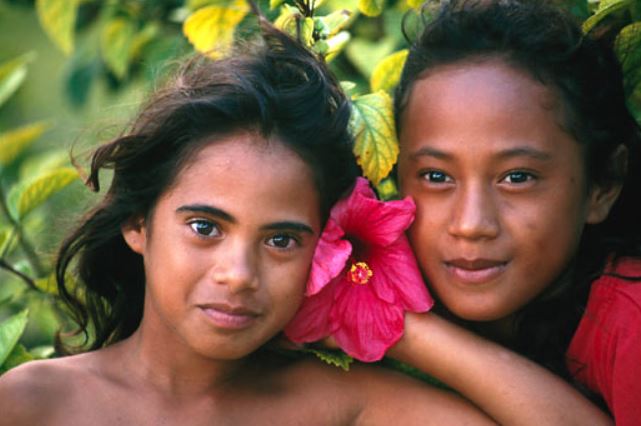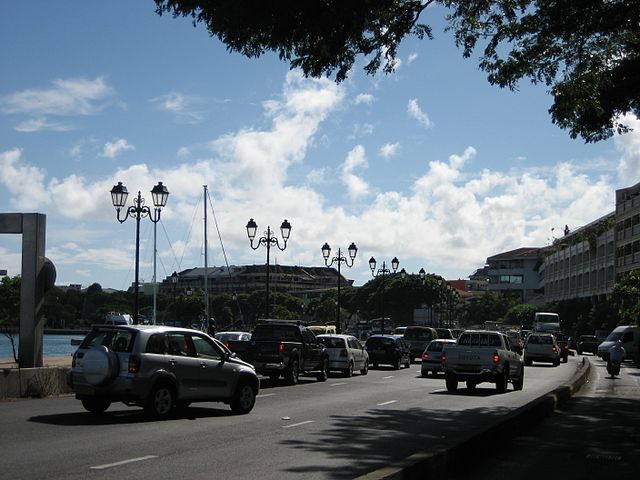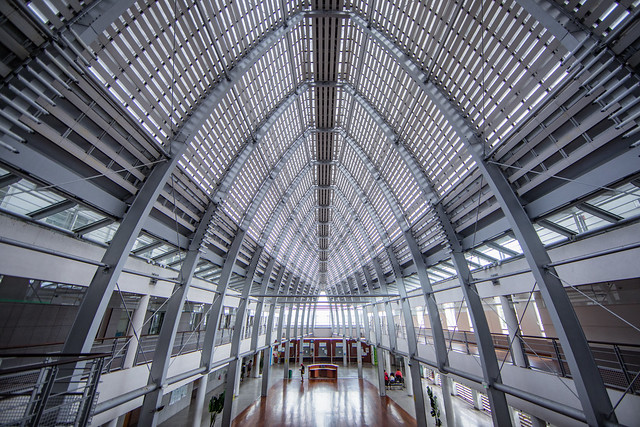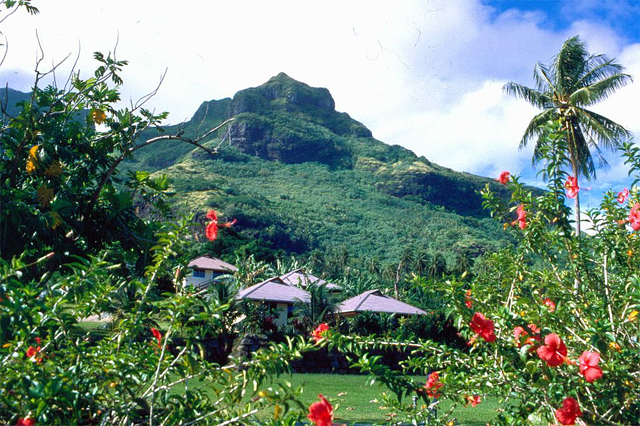Like most of the other societies described in this website, the designation of the Tahitians as “peaceful” rests on careful analysis by a qualified anthropologist. Robert Levy convincingly provided detailed analyses of conditions on the ground in a particular time and place—the Society Islands in the 1960s. But how have social and cultural conditions changed over the years since that original assessment was made? Are they still as nonviolent as they used to be?

Unfortunately, physical violence in Tahiti, and particularly within Tahitian families, is rising. According to figures released on January 28 by the High Commissioner for Polynesia, Dominique Sorain, the statistics for numerous types of violence for 2019 show some improvements—decreases in violence—but other categories show increases.
At a press conference shared with four other officials, M. Sorain announced the priorities of the government for stemming violence as controlling the use of illegal drugs, the pursuit of road safety, and the need to prevent family violence. The report by the High Commissioner presented detailed summaries of the statistical trends in several categories.
The rate of damage to property, his first category, made a 4 percent improvement last year compared to 2018. He cited a total of 5,200 incidents of vandalism, theft, scams, and breach of trust. That total represents 19.01 offenses per 1000 inhabitants, compared to the figure for all of France of 32.27.

Another category of violence that showed some improvement compared to the previous year is deaths due to accidents on the roads. There were 142 last year compared with 183 in 2018. Sorain attributed the improvement, at least in part, to police patrolling plus an awareness campaign.
Turning to categories that showed increases in violence in 2019, he started off with the figures for interpersonal violence: 2,929 incidents, of which 81 percent were within the family. The bar chart he presented showed a rate of just over 2,500 incidents the previous year. The High Commissioner identified domestic violence as the highest priority problem in Polynesia.

He said that the figures for domestic violence are increasing because the government is encouraging Tahitians to file complaints. The government is implementing a range of measures to search for answers. In the second half of 2020, a medico-judicial unit will be created in the Taaone Hospital that will allow the police to be involved with health care matters such as domestic violence.
Another category of violence to show an increase in 2019 is drug-related offenses, up 10 percent compared to 2018. The rate of 6.38 incidents per 1,000 inhabitants of Polynesia compares to 3.2 for France as a whole. The High Commissioner said that a significant contributing factor is the growing use of ice. However, the record year for the capture of ice was 2017.
These current statistics on violence among the Tahitians contrast with the impressions of their society 60 years ago gained by Robert I. Levy when he was doing his fieldwork among them. In one of his works, Levy (1978) described his careful observations at two Tahitian communities in the early 1960’s. His work was reviewed in a news story in December 2017, though his points are important enough to mention again briefly.
Levy saw that the Tahitians did not have many problems with hostilities. Furthermore, people did not show much anxiety, stress, physical or muscular strain, or psychological problems. The anthropologist concluded that the Tahitian people managed hostility without it becoming a problem.

He also observed that the cultural and physical environment on Tahiti exerted a lot of influence on the gentleness of the Tahitians. The adaptation of the villages to the natural environment minimized external frustrations—food and other needs were easily available and plentiful. Further, their culture helped reduce frustration. For instance, they believed they had little control over nature or the behavior of others. They felt that trying to change the nature of reality would probably cause a rebound that could destroy the initiator.
People were optimistic but passive at the same time, a condition that was produced by their methods of socialization and reinforced by other values and practices in their society. Their universe was less frustrating for them than one where individuals are believed to be able to change things.
In that same article, Levy indirectly offered a little hope that the increases in violence noted by the High Commissioner last week might yet be reversed. He observed how Western visitors to Tahiti in the 18th and 19th centuries reported that the Tahitians were peaceable and gentle to one another. The exception was during the early 19th century, 1810-1820, when there were reports of violence and heavy drinking, probably due to the recent arrival of Protestant missionaries and the stress of a transition to new patterns prompted by Western influences.
However, Levy noted that things soon settled back into their former, gentle ways. Hopefully, the Tahitians will be able to do the same thing again—to reach back into their past traditions and find ways to recover their peaceful culture.